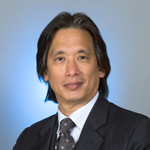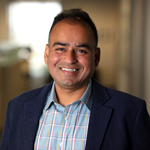
Symposium for Machine Learning Implementation & Evaluation
Improved healthcare delivery and patient outcomes are the ultimate goals of many artificial intelligence (AI) applications in healthcare. However, relatively few machine learning models have been translated to clinical practice so far, and among those, even fewer have undergone a controlled trial to assess their impact.
At NYU Langone, the Predictive Analytics Unit in the Center for Healthcare Innovation and Delivery Science is hosting the Symposium for Machine Learning Implementation and Evaluation (SMILE) to discuss the latest advances in mobilizing machine learning to practice and evaluating and bringing machine learning to patients.
If you are interested in attending, please register online. After you register, you will be sent a link to the virtual event.
This symposium is focused on aspects of the clinical–translational process beyond retrospective modeling that impact design, development, validation, and regulation of machine learning models in healthcare. We aim to create a network and community that people can use to discuss how to implement and integrate AI/machine learning models and educate and showcase the implementation and application of machine learning in healthcare.
This conference is focused on work that is deployed in clinical practice and potentially evaluated. This event features invited keynote speakers, spotlight speakers, and panel discussions. It is virtual, free, and open to anyone interested in healthcare, from providers to information officers.
Symposium Details
Date: November 18, 2021
Time: 12:30–5:00PM EST
Tentative Agenda
The details presented below are evolving and subject to change.
November 18: Mobilizing Machine Learning to Practice
12:30–12:45PM
Welcome and Introduction
Yindalon Aphinyanaphongs, MD, PhD
Nader Mherabi
12:45–1:10PM
Keynote Speaker
Nigam Shah, PhD
Stanford Health Care
1:10–1:35PM
Keynote Speaker
CT Lin, MD
UCHealth
1:35–1:50PM
Q&A Session with Keynote Speakers
1:50–2:00PM
Break
2:00–2:15PM
Cultural Change and Change Management
Yindalon Aphinyanaphongs, MD, PhD
NYU Langone
2:15–2:30PM
Business Case for Machine Learning and Health
Vikas Chowdhry, MS, MBA
Parkland Center for Clinical Innovation
2:30–2:45PM
Evaluation
Karandeep Singh, MD, MMSc
University of Michigan
2:45–3:00PM
Workflow Integration
Mark Sendak, MD
Duke University
3:00–3:20PM
Q&A
3:20–3:30PM
Break
3:30–3:35PM
Introduction to Lightning Talks
3:35–3:45PM
Lightning Talk 1
Matthew Hoffman, MD
Christiana Care
3:45–3:55PM
Lightning Talk 2
Anna Goldenberg, PhD
SickKids Toronto
3:55–4:05PM
Lightning Talk 3
Shalmali Joshi, PhD
Harvard University
4:05–4:15PM
Lightning Talk 4
Rishi Kamaleswaran, MD
Emory University
4:15–4:25PM
Lightning Talk 5
Anthony Chang, MD
Children’s Hospital of Orange County
4:25–4:50PM
Panel Discussion
4:50–5:00PM
Closing
Target Audiences
This symposium targets the following audiences:
- chief information officers (CIOs), chief medical information officer (CMIOs), and chief data scientists
- predictive analytics and informatics leaders in patient-serving institutions
- data scientists and machine learning scientists who build models
- data engineers who deploy models
- ethical/equity AI experts who aim to make AI fair and equitable
- explanatory AI experts who aim to make models transparent to users
- biostatisticians and evaluators who evaluate AI-driven models in clinical settings
- human computer interface experts who design stakeholder-friendly interfaces for these AI models
- machine learning operations (MLOps) engineers who build infrastructure across the lifecycle of AI models
- clinical informaticians who integrate AI models into clinical workflows
We will continue to update this site as speakers and panelists are confirmed.
Keynote Speakers

CT Lin, MD
Dr. Lin is chief medical information officer at UCHealth, a 12-hospital, 900-clinic system in the Rocky Mountain region. UCHealth has achieved Healthcare Information and Management Systems Society Stage 7 and College of Healthcare Information Management Executives’ Most Wired Level 10. He is a professor of medicine at University of Colorado, and is board-certified in internal medicine and clinical informatics. He sees internal medicine patients and also facilitates workshops on excellence in communication to reduce burnout and improve outcomes. His national publications and talks include “Addressing Physician Burnout with EHR Sprints” and “Online Patient Communication with Open Test Results and Open Notes.” His national awards include Healthcare IT Innovator and Electronic Physician of the Year. He leads a team of 25 physician informaticians whose mission is to improve physician and team resilience and effectiveness by building extraordinary relationships and innovative tools.

Nigam Shah, PhD
Dr. Shah is a professor of medicine, specializing in biomedical informatics, at Stanford University, and serves as the associate chief information officer for data science for Stanford Health Care. Dr. Shah's research focuses on bringing machine learning to clinical use safely, ethically, and cost-effectively. Dr. Shah was elected into the American College of Medical Informatics in 2015 and was inducted into the American Society for Clinical Investigation in 2016. He holds an MBBS from Baroda Medical College, India, a PhD from Penn State University, and completed postdoctoral training at Stanford University.
Lightning Talks Speakers

Anthony Chang, MD, MPH, MBA
Dr. Chang is a pediatric cardiologist and medical director of the Heart Failure Program at Children’s Hospital of Orange County (CHOC). He is the chief intelligence and innovation officer and founder and medical director of the Sharon Disney Lund Medical Intelligence and Innovation Institute (MI3) at CHOC and serves as co-director of the MI3 Summer Internship Program. He is the founder of Pediatrics 2040 and the founder and chair of the International Society of Pediatric Innovation (iSPI), as well as chairman and founder of Artificial Intelligence in Medicine (AIMed). Dr. Chang also launched the Medical Intelligence Society (MIS), is the founder of Medical Intelligence 10 (MI10), and founder of the American Board of Artificial Intelligence in Medicine (ABAIM). He is the author of Intelligence-Based Medicine Principles and Applications of Data Science, Artificial Intelligence, and Human Cognition in Clinical Medicine and Health Care.
Dr. Chang has a BA in molecular biology from Johns Hopkins University. He completed his MD at Georgetown University School of Medicine and his MS in data science with a subspecialization in artificial intelligence from Stanford School of Medicine. Dr. Chang completed a certification on artificial intelligence at Massachusetts Institute of Technology. He has an MBA, with a focus in health care administration, from the University of Miami School of Business, and an MPH, with a focus in health care policy, from the Jonathan Fielding School of Public Health at University of California, Los Angeles.

Anna Goldenberg, PhD
Dr. Goldenberg is the Varma Family Chair in Biomedical Informatics and Artificial Intelligence at SickKids Research Institute. She is an associate professor in the Department of Computer Science at the University of Toronto, a faculty member and associate research director of health at Vector Institute, and is Canadian AI Chair at CIFAR as well as a member of CIFAR’s Child and Brain Development group. Dr. Goldenberg trained in machine learning at Carnegie Mellon University, with a postdoctoral focus in computational biology and medicine. The current focus of her lab is on developing machine learning methods that capture heterogeneity in complex human diseases as well as developing risk prediction and early warning clinical systems. Dr. Goldenberg is strongly committed to creating responsible AI to benefit patients across a variety of conditions.

Shalmali Joshi, PhD
Dr. Joshi is a postdoctoral fellow at the Center for Research on Computation and Society at Harvard University. Previously, she was a postdoctoral fellow at the Vector Institute. She received her PhD from the University of Texas at Austin. Dr. Joshi’s research expertise focuses on developing reliable machine learning methods for clinical healthcare. She has contributed to machine learning research in explainability, algorithmic recourse, probabilistic modeling, and causal inference for clinical decision-making. She has also contributed to interdisciplinary venues on ethical challenges of deploying machine learning tools in clinical healthcare.
Steering Committee

Yindalon Aphinyanaphongs, MD, PhD
Dr. Aphinyanaphongs is a physician–scientist in the Center for Healthcare Innovation and Delivery Science at NYU Langone. He is an assistant professor in the Departments of Medicine and Population Health, and his lab focuses on novel applications of machine learning to clinical problems, research, and infrastructure regarding model deployment and maintenance. He is also the director of operational data science and machine learning at NYU Langone, and leads a Predictive Analytics Unit composed of data scientists and engineers that build, evaluate, benchmark, deploy, and evaluate machine learning-based classification and predictive algorithms.

Vikas Chowdhry, MS, MBA
Vikas is the chief analytics and information officer at Parkland Center for Clinical Innovation (PCCI) and has 18 years of healthcare experience. He works closely with data science and clinical teams at PCCI to develop machine learning–driven technologies and products that empower clinical and social services providers and individuals to create communities that are healthier and more productive. Additionally, Vikas has a keen interest in the area of leveraging incentive programs to influence patient behavior.
Before joining PCCI, Vikas served in multiple leadership roles at Epic. During his 15 years at Epic, he led multiple product teams to develop and enhance enterprise software for radiology information systems, labor and delivery, obstetrics and gynecology, population health, and predictive analytics. He also led the organization’s vision and execution for predictive analytics and machine learning domains including pricing, go-to-market, and growth strategies.
He has an undergraduate degree in computer science from the University of Jodhpur, India, a graduate degree in computer science from University of Illinois, and an MBA from the University of Chicago Booth School of Business.

Benedict Guzman, MS
Benedict is a data scientist for the Predictive Analytics Unit at NYU Langone Health. Previously, he worked for the Comprehensive Program on Obesity for two years. His passion is in healthcare: before joining NYU Langone, he was a laboratory technologist for two and a half years and was an emergency medical technician-basic (EMT-B) for more than one year. Combined with his clinical knowledge, he is interested in applying machine learning and predictive analytics to improve healthcare.

Narges Sharif Razavian, PhD
Dr. Razavian is an assistant professor in the Departments of Population Health and Radiology and a member of NYU Langone’s Center for Healthcare Innovation and Delivery Sciences and its Predictive Analytics Unit. Her lab focuses on various applications of machine learning and artificial intelligence for medicine with a clinical translation outlook, and they work with medical images, clinical notes, and electronic health records. Before joining NYU Langone, she was a postdoc at CILVR Lab at NYU Courant Institute of Mathematical Sciences. She received her PhD at Carnegie Mellon University in the computational biology group.

Karandeep Singh, MD, MMSc
Dr. Singh is an assistant professor of learning health sciences, internal medicine, urology, and information at the University of Michigan. He is a nephrologist with a background in biomedical informatics who uses machine learning methods to model electronic health record and registry data in support of a learning health system. He directs the Machine Learning for Learning Health Systems Lab, which focuses on using machine learning and biomedical informatics methods to understand and improve health at scale.
His research spans multiple clinical domains including nephrology, urology, emergency medicine, obstetrics, and ophthalmology. He is the associate workgroup director for the university’s Precision Health Implementation Workgroup, which supports the implementation of campus-wide scientific discoveries into patient care. He chairs the Michigan Medicine Clinical Intelligence Committee, which oversees the implementation of machine learning models across the health system. He teaches a health data science course for graduate and doctoral students. He completed his internal medicine residency at UCLA Medical Center, where he served as chief resident, and a nephrology fellowship at Brigham and Women’s Hospital/Massachusetts General Hospital. He completed his medical education at the University of Michigan Medical School and holds a master’s degree in medical sciences in biomedical informatics from Harvard Medical School. He is board-certified in internal medicine, nephrology, and clinical informatics.
